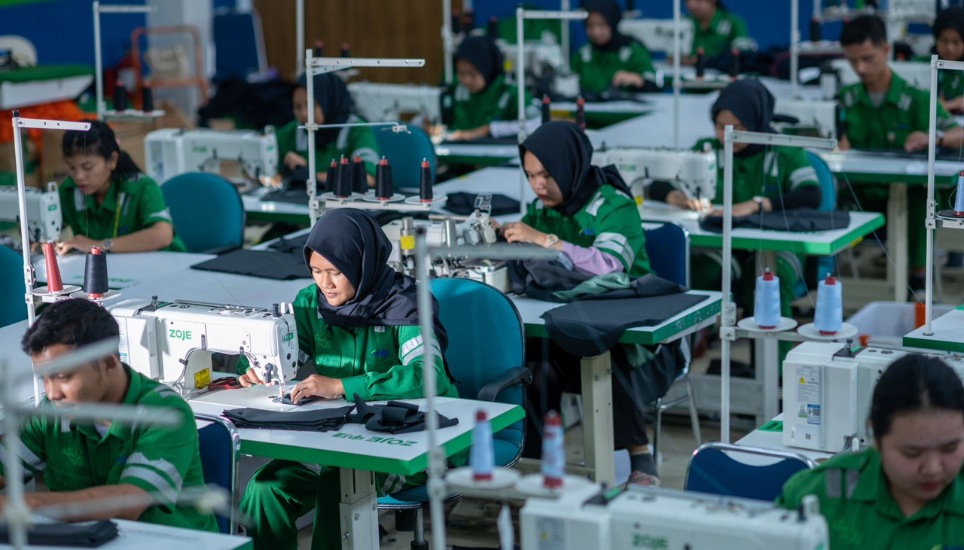
Experts globally have continuously emphasised how immediate actions are needed in every industry to avert climate catastrophe. A study published in Melbourne, Australia, in 2019, highlights how an “existential threat to human civilization” might occur if the issue is not addressed.
According to the ‘An Eco-wakening’ report (2021) by the Economist Intelligence Unit (EIU) commissioned by the World Wildlife Fund (WWF), customers believe that brands have similar responsibility as governments towards developing positive environmental change.
Globally, people are taking multiple sustainable steps to improve the climate. Since 2016, the popularity of Google searches has been related to sustainable goods and biodiversity. Demand for sustainable goods is increasing everywhere as now consumers are not afraid to take a stand to protect the environment.
The growing level of environmental consciousness globally has also impacted both the fashion and textile and garment industries. Fashion companies are also scrutinised for their products and supply chains, which include the textile and garment industry.
Consumers are focusing more on green fibres, which are biodegradable, natural, regenerated, and recyclable. Modern wood fibres can produce sustainable, biodegradable, and renewable materials that can decrease ecological footprint. One such example is viscose rayon, it consumes less water and has higher moisture absorption and breathability, which is friendly to the skin and feels comfortable to touch.
Besides the products, customers also focus on the production and supply chains. Now, consumers want to know whether the fibre producer is following sustainable manufacturing, from the plantation of seedlings and management to fibre production and yarn spinning operations. Several studies have seen that consumers have switched brands due to a lack of adequate values and policies regarding sustainability.
Such scenarios clearly show why companies globally must focus on sustainability within their operations, values, and products or services. The trend is not only limited to first-world countries but has also impacted developing countries like Bangladesh, India, and Pakistan.
Being the second largest in the ready-made garment sector, Bangladesh has been on the path of redefining its role in the global market and becoming a sustainable manufacturing partner. Hence, local and foreign companies in the fashion, textile, and garment sectors have been working towards integrating sustainable processes throughout the manufacturing process along with operations, values, and policies. The sustainable manufacturing process of green fibres can have a massive positive impact on the environment. For example, viscose fibre helps spinners decrease energy consumption by reducing carbon dioxide emissions during production compared to polyester and cotton.

Companies with sustainable agendas, like APR (Asia Pacific Rayon), can catalyse positive environmental and community changes with their environmentally friendly manufacturing process, including plantations. By following sustainable manufacturing, APR has already reduced greenhouse gas emission intensity by 88 per cent, sulphur emission intensity by 55 per cent, water consumption intensity by 35 per cent, hazardous waste intensity by 28 per cent, and energy intensity by 18.6 per cent against the 2019 baseline.
This progress is guided by an ambitious APR2030 sustainability agenda established in 2021 and is comprised of long-term sustainability targets across four pillars, including climate and nature positivity, clean manufacturing, circularity and inclusive prosperity. In 2022, APR also officially signed up for the Science Based Targets Initiative (SBTi), a global body enabling businesses to set ambitious emissions reductions targets in line with the latest climate science.
These companies can help Bangladesh become a sustainable manufacturing partner in the global market by creating positive changes in the climate. Both fashion and textile and garment industries are connected to multiple Sustainable Development Goals (SDGs), and companies' environmental-friendly approaches help countries to meet the targets faster. APR directly or indirectly contributes to SDG 6 (Clean Water and sanitation), SDG 9 (Industry, innovation, and infrastructure), SDG 12 (Responsible consumption and production), and SDG 13 (Climate action).
The company is also addressing and making impacts on surrounding communities, affecting SDG 3 (Good health and well-being), SDG 4 (Quality education), and SDG 17 (partnerships for the goals).
Similarly, the business is most relevant to SDG 2 (Zero Hunger), SDG 8 (Decent work and economic growth), and SDG 15 (Life on land). Furthermore, these companies also use extensive R&D (research and development) to strengthen their sustainable commitments and drive more innovation towards sustainable solutions and practices.
Companies globally, especially the ones in the fashion and textile and garments industries, have the power to significantly impact the environment, community, and economy for the better. All companies in the fashion and garment and textile sectors must work towards sustainability not only to meet customers' changing buying patterns but also for the betterment of the climate.
The writer is the vice president of Marketing and Downstream Development at Asia Pacific Rayon